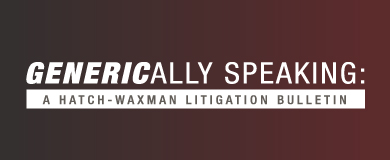- Acumen Powered by Robins Kaplan LLP®
- Affirmative Recovery
- American Indian Law and Policy
- Antitrust and Trade Regulation
- Appellate Advocacy and Guidance
- Business Litigation
- Civil Rights and Police Misconduct
- Class Action Litigation
- Commercial/Project Finance and Real Estate
- Corporate Governance and Special Situations
- Corporate Restructuring and Bankruptcy
- Domestic and International Arbitration
- Entertainment and Media Litigation
- Health Care Litigation
- Insurance and Catastrophic Loss
- Intellectual Property and Technology Litigation
- Mass Tort Attorneys
- Medical Malpractice Attorneys
- Personal Injury Attorneys
- Telecommunications Litigation and Arbitration
- Wealth Planning, Administration, and Fiduciary Disputes
Acumen Powered by Robins Kaplan LLP®
Ediscovery, Applied Science and Economics, and Litigation Support Solutions
-
April 15, 2024Robins Kaplan Named to 2024 BTI Client Service A-Team
-
April 9, 2024Robins Kaplan LLP Files Complaint Against Social Media Giants Meta, Snap, TikTok on Behalf of Spirit Lake Nation, Menominee Indian Tribe of Wisconsin
-
April 8, 2024Tara Sutton, Emily Tremblay Shortlisted for Euromoney’s Women in Business Law Awards
-
April 24, 2024IP Leadership Executive Summit
-
April 24, 2024IP Odyssey: Navigating the Latest Developments in Intellectual Property Law
-
April 30, 2024Navigating Generational Dynamics
-
March 2024e-Commerce: Pitfalls and Protections
-
March 22, 2024‘In re Cellect’:
-
March 14, 2024How Many Cases Have You Tried to a Verdict?
-
September 16, 2022Uber Company Systems Compromised by Widespread Cyber Hack
-
September 15, 2022US Averts Rail Workers Strike With Last-Minute Tentative Deal
-
September 14, 2022Hotter-Than-Expected August Inflation Prompts Massive Wall Street Selloff
Find additional firm contact information for press inquiries.
Find resources to help navigate legal and business complexities.
Merck Sharp & Dohme Corp. v. Sandoz Inc.
Filing a paragraph IV certification is not required for a District Court to have subject matter jurisdiction over a claim of patent infringement; all that is required is the allegation of patent infringement.
April 16, 2013

Case Name: Merck Sharp & Dohme Corp. v. Sandoz Inc., Civ. No. 12-3289 (PGS), 2013 U.S. Dist. LEXIS 19933 (D.N.J. Feb. 14, 2013) (Sheridan, J.)
Drug Product and Patent(s)-in-Suit: Emend® (aprepitant); U.S. Pat. Nos. 5,591,336 (“the ‘336 patent”) and 5,716,942 (“the ’942 patent”)
Nature of the Case and Issue(s) Presented: A pharmaceutical company is required to submit an NDA to the FDA before introducing a new drug into interstate commerce. The NDA must identify any patents for “which a claim of patent infringement could reasonably be asserted if a person not licensed by the owner engaged in the manufacture, use, or sale of the drug.” 21 U.S.C. § 355(b)(1). When the NDA is approved, this information is published in the FDA’s Orange Book. When a generic manufacturer files an ANDA including a “paragraph IV certification” that generic manufacturer certifies that the patent listed by the NDA holder in the Orange Book is invalid or will not be infringed by the drug that is the subject of the ANDA.
Before the Court were two motions to dismiss, asserted by two separate sets of defendants in two separate patent litigations initiated by Merck. Merck’s NDA includes two dosage strengths, 115 mg and 150 mg. For the 115 mg strength, Merck submitted information concerning both patents, and once approved, the Orange Book listed both patents. For the 150 mg strength supplemental NDA, Merck submitted similar patent information, however, on approval, only the ’336 patent was listed in the Orange Book. The Orange Book was corrected, but after the submission of Defendants’ ANDAs, which did not include paragraph IV certifications against the ’942 patent. The Defendants moved to dismiss only with respect to the ’942 patent. The central question before the Court was whether a paragraph IV certification was necessary in order for a District Court to assert jurisdiction over a claim pursuant to 35 U.S.C. § 271(a). The Court denied both motions.
Why Merck Prevailed: The Court found that it had subject matter jurisdiction over Merck’s claim with respect to the ’942 patent because 28 U.S.C. § 1338 grants federal courts “original jurisdiction of any civil action arising under any Act of Congress relating to patents.” Because the complaint alleges jurisdiction under that section and causes of action for patent infringement under 35 U.S.C. § 271(e)(2), which is an Act of Congress related to patents, the Court has jurisdiction. Additionally, nothing in the language of the Hatch-Waxman Act suggests that infringement actions against ANDA filers must be based only on Orange Book-listed patents. Finally, common sense and judicial efficiency also weighed in favor of trying the two infringement claims together.
Related Publications
Related News
If you are interested in having us represent you, you should call us so we can determine whether the matter is one for which we are willing or able to accept professional responsibility. We will not make this determination by e-mail communication. The telephone numbers and addresses for our offices are listed on this page. We reserve the right to decline any representation. We may be required to decline representation if it would create a conflict of interest with our other clients.
By accepting these terms, you are confirming that you have read and understood this important notice.
